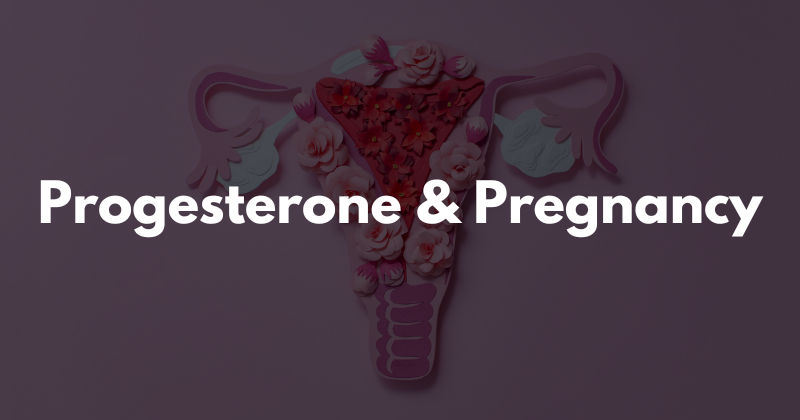I think many couples overlook the male factor when it comes to their infertility challenges. Infertility statistics state that 40% of infertility problems are with the female, 40% with the male and 20% as a couple combined. The world of infertility doesn’t offer men as many different test options as it does women. The standard infertility tests on the market as of now for men is 18% vs 96% for women.
AndroJek and UniLab a leading infertility lab in South Florida have teamed together to offer a new test panel for male factor issues. The Male Reproductive Health Panel, MRH consists of a group of diagnostic tests used to assess sperm for both functional capability, and genomic integrity to complete the post-fertilization process resulting in an embryo.
What is the Male Reproductive Health℠ Panel (MRH)?
Did you know…?
60% of infertility is male-factor related
47% of males tested with the MRH Panel were found to have male factor issues
This is a huge leap forward in diagnostic accuracy.
The goal of the Male Reproductive Health℠ Panel is to identify the best treatment path for up to 47% of infertile males. The MRH Panel is a quantum leap forward in the ability to screen and diagnose sperm. MRH is world patented and combines the use of proprietary and non-proprietary technologies to interpret the optimal treatment path. With the MRH Panel, you are looking at sperm function, oxidative (ROS) damage, and structural issues. This provides the most holistic look at sperm health and use in a clinical setting!
The Male Reproductive Health℠ Panel consists of a group of high-complexity diagnostic tests used to assess sperm DNA for structural stability and functional capability in the post-fertilization process. The MRH panel provides patients with all of the tests you have read about on our site including, the Sperm DNA Decondensation (SDD™), Sperm DNA Accelerated DNA Decondensation (SDAD™), and Sperm Chromatin Fragmentation Assay (SCFA™).
Why should I have the Male Reproductive Health panel?
Benefit #1: The MRH panel provides you with 3 unique diagnostic tests. These tests will address the male diagnostic shortfall to better identify a portion of the 60% male infertility component currently going undetected. You can have all of these tests performed in the same visit to your doctor and get answers that will help you determine the proper treatment path which will ultimately save you time, money and emotional stress.
Benefit #2: The MRH panel is the only solution to optimize treatment for the 47% of infertile males and will help in identifying the couples’ unexplained infertility. SDD test accounts for 25%, SDAD for 10%, and SCFA accounts for 12%.
Benefit #3: The MRH panel provides patient-specific information for a greater degree of personalized medicine and treatment by focusing on DNA Integrity and Sperm Function, compared to standard, superficial semen analysis.
What can the Male Reproductive Health panel do for my patients and my practice?
The MRH panel has many beneficial factors not only for patients but for your doctors/physicians as well. Some of them are the following:
- Increased success rates by eliminating wasted time on treatments with little chance of success.
- Improved counseling on upfront ART options reduces patient dropout, enhancing the chances of bringing home a baby sooner
- Minimize trial and error with other ART methods leading to an accumulation of failed ART attempts and patient frustration.
- Enhanced reputation among the infertility patient community.
- Evidenced based medicine to provide couples with the best treatment option.
The Male Reproductive Health panel vs. Semen Analysis
Semen Analysis is very traditional and basic testing. As a superficial measure, the results only provide information regarding your sperm concentration (count), morphology (size and shape) and motility (movement), not about what makes your sperm function and work during fertilization. With a normal semen analysis, the non ART treatment options would be:
- Blind Varicocoelectomy
- TESE/PESA/TESA/MESA
- Blind Anti-Oxidant Therapy
The MRH panel provides a superior profile that is personalized and objective. It will give you targeted ART treatment courses as well as non-ART options such as:
- Targeted Varicocoelectomy
- TESE/PESA/TESA/MESA
- Targeted Anti-Oxidant Therapy
- Remove and eliminate toxicant exposure
Male Infertility Symptoms

The main sign is usually the inability to conceive after trying for a year.
However, some men do notice warning signs that something’s wrong.
Physical symptoms may include:
- Changes in sexual function
- Pain or swelling in the testicles
- Problems with ejaculation
- Small or underdeveloped testicles
- Decreased body or facial hair
Other signs of infertility in men:
- Frequent respiratory infections
- Inability to smell properly
- Breast growth or tenderness
- Low sperm count in lab tests
When to See a Doctor
Don’t wait if you’ve been trying to conceive for six months without success.
See a doctor immediately if you have any of these conditions:
- History of testicle problems
- Previous groin or genital surgery
- Sexual function issues
- Pain or lumps in the genital area
Early intervention often leads to better outcomes.
Many causes of male infertility respond well to treatment when caught early.
Causes of Male Infertility
Medical Causes
Infections can interfere with sperm production or health.
Some infections cause permanent damage, while others are treatable.
Common infections include:
- Sexually transmitted infections
- Prostate infections
- Testicular infections
Hormone imbalances affect sperm production significantly. The hypothalamus, pituitary gland, and testicles must work together properly. Problems with any of these glands can cause male infertility.
Physical problems block sperm delivery. Varicoceles (enlarged veins in the scrotum) are the most common reversible cause of male infertility. Other blockages can occur in the tubes that carry sperm.
Genetic defects cause about 10-15% of male infertility cases. Some men are born with conditions that affect sperm production or delivery.
Environmental Causes
- Chemical exposure damages sperm production. Heavy metals, pesticides, and industrial chemicals all pose risks. Men working in certain industries face higher risks of infertility.
- Heat exposure reduces sperm production temporarily. Hot tubs, saunas, and tight clothing can raise scrotal temperature. Laptop computers used directly on the lap may also cause problems.
- Radiation exposure can permanently damage sperm production. Medical treatments and occupational exposure both create risks.
Health, Lifestyle and Other Causes
- Smoking dramatically reduces sperm count and quality. The chemicals in cigarettes damage sperm DNA. Secondhand smoke exposure also affects male fertility.
- Alcohol consumption decreases testosterone levels. Heavy drinking can cause permanent damage to sperm production. Even moderate alcohol use may impact fertility.
- Drug use severely affects sperm production. Anabolic steroids, cocaine, and marijuana all reduce fertility. Some prescription medications also cause temporary infertility.
- Obesity disrupts hormone balance. Excess weight affects testosterone production and sperm quality. Weight loss often improves fertility in overweight men.
- Stress impacts hormone production. Chronic stress can interfere with sperm production. Managing stress through exercise or counseling may help.
For couples exploring alternatives, our become an egg donor in Florida program offers hope.
We also provide detailed information about surrogacy requirements for those considering this path.
Risk Factors
Age plays a smaller role in male fertility than female fertility.
However, sperm quality does decline gradually after age 40.
Medical history significantly impacts fertility risk.
Men with certain conditions face higher chances of infertility:
- Childhood infections
- Genetic disorders
- Previous surgeries
- Cancer treatments
Lifestyle factors increase infertility risk. Poor diet, lack of exercise, and substance abuse all contribute.
Environmental exposures create ongoing risks. Men in certain professions or geographic areas face higher rates of infertility.
Family history matters for some types of male infertility. Genetic conditions can pass from father to son.
Complications
Untreated male infertility rarely causes serious health problems. However, the emotional impact can be significant.
- Relationship stress commonly occurs when couples struggle with infertility. Communication becomes crucial during this challenging time.
- Depression and anxiety affect many men dealing with infertility. Professional counseling can help manage these feelings.
- Financial strain from treatments and procedures adds pressure. Creative financial assistance for surrogacy programs can help reduce costs.
Prevention
You can’t prevent all causes of male infertility. However, several steps reduce your risk significantly.
- Maintain a healthy weight through proper diet and exercise. Obesity directly impacts hormone production and sperm quality.
- Avoid smoking and limit alcohol consumption. Both substances damage sperm production and quality.
- Manage stress through healthy coping mechanisms. Exercise, meditation, or hobbies can help reduce stress levels.
- Protect yourself from environmental toxins. Wear protective equipment when working with chemicals.
- Keep testicles cool by avoiding tight clothing and excessive heat exposure.
- Practice safe sex to prevent sexually transmitted infections.
- Get regular checkups to catch problems early.
Wendy Arker entered the field of infertility with a huge heart and passion to guild others on their quest to grow their own family after her personal journey with infertility and turning to egg donation and sperm donation to create her own family. Being a single-mother-by-choice, Wendy understands firsthand the unique way families are built. Whether you’re a married couple, single, or LBGTQ, Creative Love is committed to assisting you.























